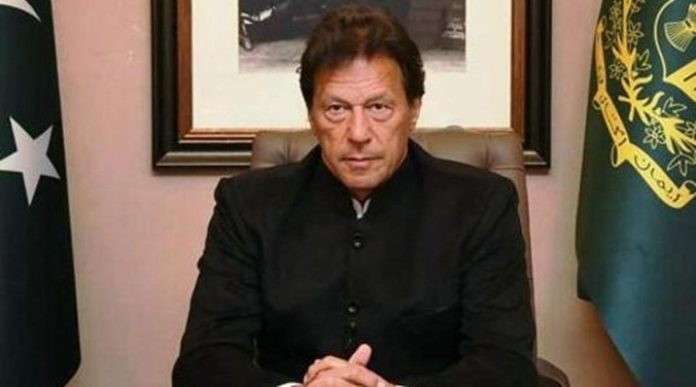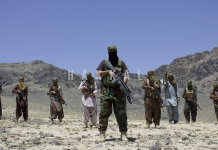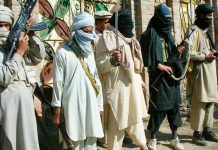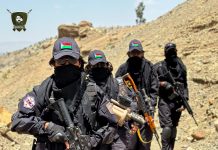COLUMN
-By R C GANJOO
Gilgit-Baltistan under the illegal occupation of Pakistan will witness for third time so-called Legislative Assembly elections on 15th November 2020. The first elections for the Legislative Assembly were held on 12 November 2009. Interestingly, Gilgit-Baltistan Legislative Assembly has been changed into Gilgit-Baltistan Assembly by the Ministry of Kashmir Affairs and Gilgit-Baltistan vide order S.R.O. 2018 (1)/704 issued on 1 June 2018 – Prime Minister of Pakistan has the authority to veto any law made by the Gilgit-Baltistan Assembly.
According to the National Database and Registration Authority (NADRA) and the Election Commission of Pakistan, there are 6,18,364 registered voters in the region with 3,29,475 men and 2,88,889 women. An estimated 6,00,000 people will exercise their right to elect 24 legislators of 33 constituencies whereas six seats are reserved for women and three for technocrats. Three members of the legislative assembly will be elected from District Gilgit, three from District Hunza Nagar, six from Skardu, two from Astor, four from Diamer, three from Ghizer and three from Ganche. 17 seats are needed to form the government.
Of the total population of 12.5 lakh in GB, Shia community dominates with 39.85 %, and Sunni 30.05 %, Ismaili 24% and Noorbakhshis 6.1%.
GB legislative assembly of 33 members strength, dissolved after completion of five-year term on June 24, 2020, which was being headed by Hafiz Hafeez-ur-Rehman of the PML-N. Imran Khan’s government, controlled by Pakistan Army, maneuvered to appoint Mir Afzal, former DIG of the region. The previous government was ruled by Pakistan Muslim League (N) with a majority member of 22 members whereas Tehreek-e-Jafana had 4, Majlis Wahadat–e-Muslimeen- 3, Pakistan Peoples Party- 1, PTI- 1, Muttahida Qaumi Movement- 1 and Balwarstin National Front- 1 member.
Shafqat Ali Inqalabi, historian and an expert of Jammu & Kashmir conflict from Gilgit said, “ It has been the practice that whosoever rules Islamabad, controls Gilgit-Baltistan.” According to his political assessment, Pakistan Taherik Insaf (PTI) will capture 12 to 14, PPP 3-4, PML(N) 2-3, JI and Nationalist each one.
“Balawaristan National Front, led by Nawaz Khan Naji, who has won from Ghizar-I twice will retain his seat again because of his popularity and voice against Pakistan’s carrot and stick policy adopted for the region,” Inqulabi said. Pakistan’s secret agency ISI has gagged the voice of nationalist leaders by putting them behind the bars.
Over 200 political activists of occupied Gilgit-Baltistan are serving in jail or facing terrorism and treason charges. Babajan is serving 71 years. Court has not responded to his appeal in 5 years. ISI has not stopped here to pin down the rebel’s voice; they have now targeted the leaders from GB who have been in exile taken political asylum in US, Belgium, Canada and Austria.
ISI succeed to gag the voice of Abdul Hameed Khan, Balwaristan National Front (Hameed Group), who belongs to the Ghizer valley of G-B. He turned as a rebel against Pakistan, went to Nepal in 1999. Later, Khan stayed in Brussels (2008-2015) where he exposed Pakistan’s atrocities in GB at the international level. But he was being tracked and ISI managed to trap him quietly and brought him to Pakistan on Feb 8, 2019. He has been put in a safe house in GB to use him against GB separatist movement as and when needed.
Under the National Counter Terrorism Authority (NCTA) notification of February 26, 2019, Pakistan agency has put a ban on political parties in GB. They are Khana-e-Hikmat, Shia Talba Action Committee (STAC), Anjuman-e-Imamia, Tanzeem Naujawana-e-Ahle Sunnat (TNA) – Gilgit, Muslim Students Organization (MSO) – Gilgit, Tanzeem Ahl-e-Sunnat wal Jamat and Markazi Sabeel Organization – Gilgit, and Balawaristan National Front (Abdul Hameed Khan Group).








